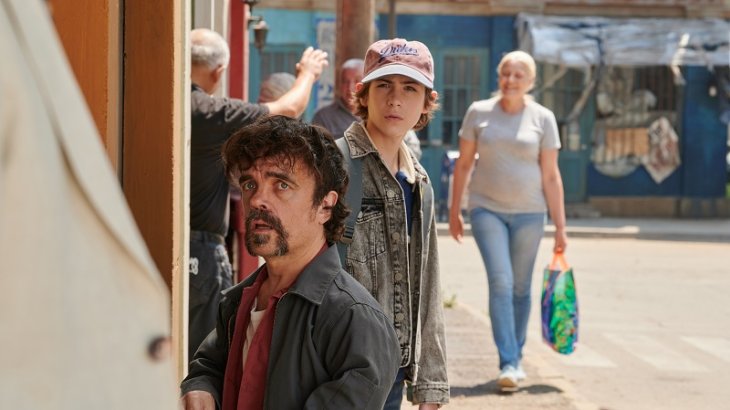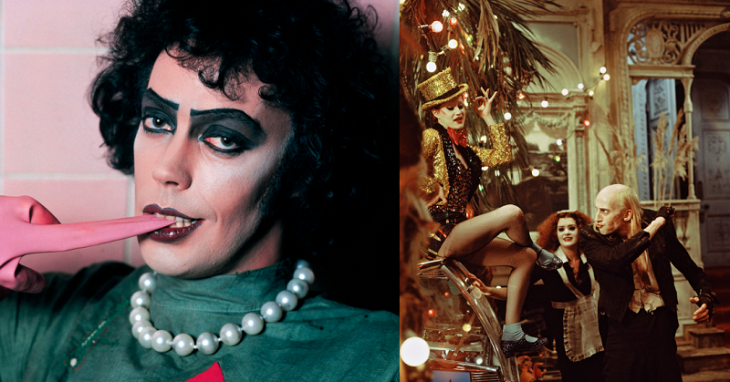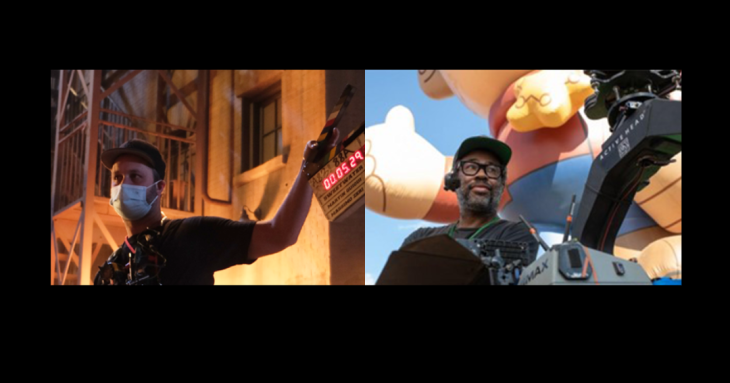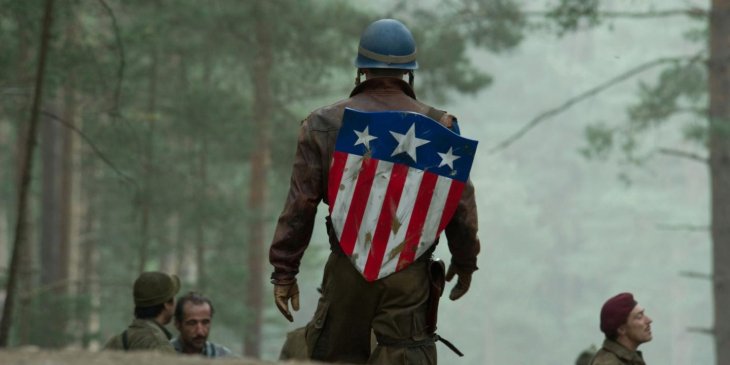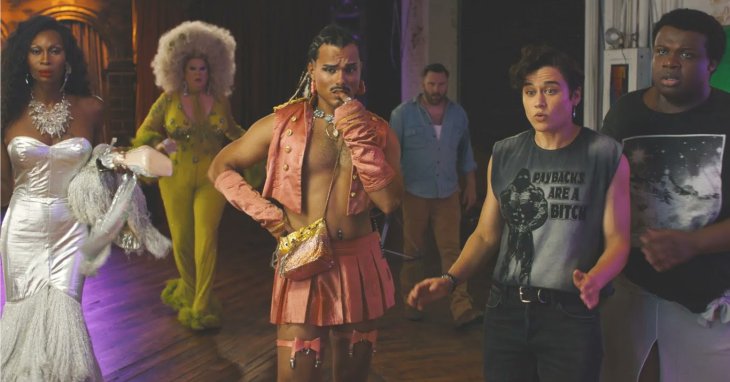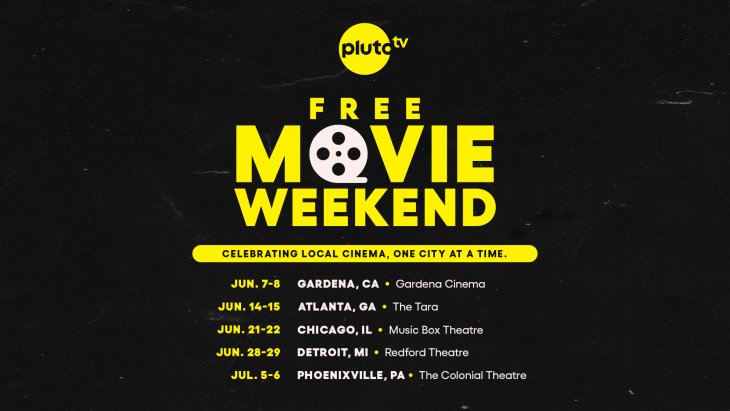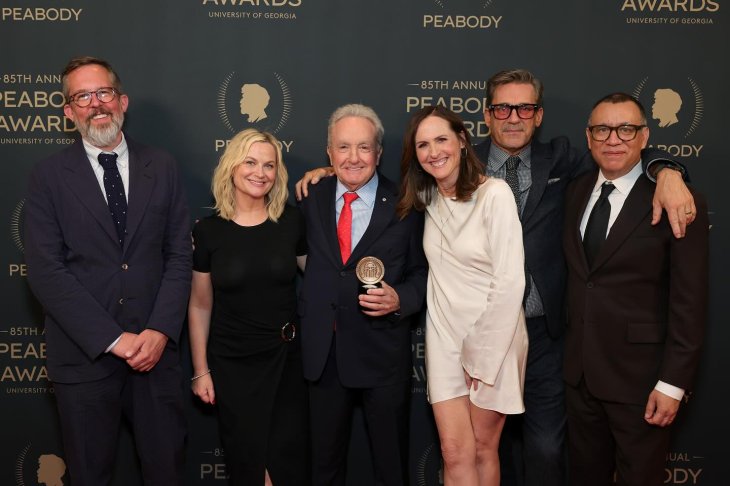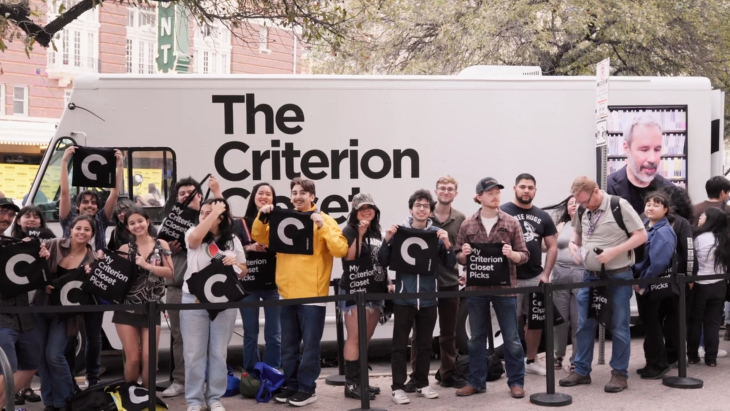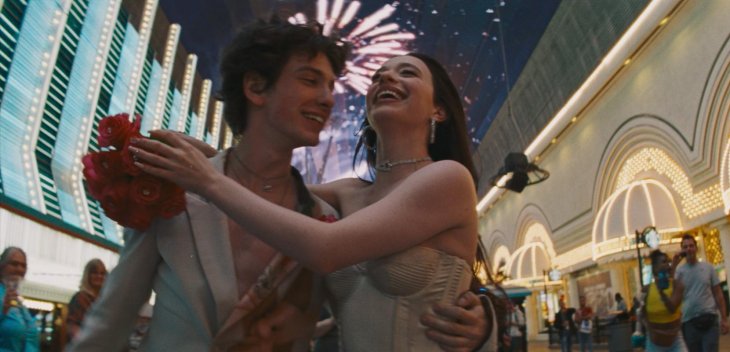
BY JOHN PAUL KING | In the opening minutes of “Burnt,” we see its central character, Adam Jones, a former superstar chef who tanked his career through egomania and drugs, completing his self-induced penance of shucking one million oysters as a kitchen worker at a dive restaurant in New Orleans. Reaching the last one, he ceremoniously eats it himself and walks out on his job without an explanation or a good-bye, aptly setting up the movie to come by establishing both his quest for redemption and the monumental ego which is his greatest obstacle. Those in real-life recovery will immediately recognize that struggle, and by presenting it so succinctly in its prologue, “Burnt” promises to chart a journey towards its resolution.
Making that journey for us onscreen is Bradley Cooper’s Adam, who plans to re-establish his reputation in world-class haute cuisine by taking over his friend Tony’s London restaurant and earning the three-star Michelin rating that eluded him in his former career. In order to do this, of course, he must rebuild all the bridges he has burned- not only with Tony, who is not exactly eager to turn over his kitchen, but with the various members of the culinary team he betrayed and abandoned during his aborted rise to fame. There’s also the matter of a dangerous Parisian drug dealer to whom he owes a substantial sum of money, and if that weren’t enough, there’s also Helene, a hot-shot sous chef he is determined to drag along with him to the top despite her dislike for him. Like any good addict, Adam sets about solving all his people problems through manipulation; admittedly, he’s a master at it, and before too long he’s stepped comfortably back into the role of a tantrum-throwing diva. The crucial ingredient in Adam’s recipe for success, however, is humility, and finding it may be a bigger task than he is ready to achieve- by himself, at least.
On the surface, “Burnt” certainly seems to get it right. It makes it clear from early on that in order to beat his worst enemy (hint: it’s not the Parisian drug dealer) he will need to learn how to connect with other people. Unfortunately, Steven Knight’s screenplay (from a story by Michael Kalesniko), takes it all by rote. It relies on formula and plot contrivances that feel all the more hollow because of the potential sincerity of its premise. It gives us a flawed protagonist and assumes that, because he is played by a handsome and likeable actor, we will be charmed by him despite his insufferable behavior; it sets up a romance between antagonistic people and relies on our accepting it because that’s how love works in the movies; it offers us predictable tropes like the gay best friend (Tony), the former colleague-turned-arch-rival, and the “unexpected” reversal of fortune; and in the end it relies on a “deus ex machina” twist to force a resolution. It’s a movie full of un-earned breakthroughs, in which events take place for no other reason than to advance the plot, and instead of character development we get one long cooking montage after another.
Those montages, for what it’s worth, are all handled with skill by director John Wells; he does an admirable job of bringing “Burnt” to the screen, keeping the camerawork simple as he showcases the elegant and authentic locations. For their part, the actors also deserve a lot of credit. Cooper IS a likeable leading man, and an honest one- which is part of the movie’s problem, because he is so believable in letting Adam’s self will run riot all over the other characters that it’s hard to see any of his presumed charm shining through. Sienna Miller gives Helene nuance enough for us to regret that she’s relegated to being half of a story-muddling romance; and Daniel Bruhl brings warmth to Tony, bestowing him with a dignity that helps to undercut the script’s awkward treatment of his sexuality. There’s also an all-too-brief appearance by Uma Thurman as a haughty food critic; and the always-welcome Emma Thompson, as a therapist, gives a disarmingly pleasant performance which covers the fact that her character speaks almost entirely in platitudes.
“Burnt” was once included on Hollywood’s “black list” of the best unproduced screenplays, and has had several stellar names (from both sides of the camera) attached to it before finally making it to the screen. I’m not sure how much it was rewritten along the way, but I suspect (if you’ll forgive the obvious culinary reference) that it was a case of “too many cooks.” In its final form, it’s a recipe that falls short of its promise, reinforcing our belief in redemption without helping us to rediscover it.
If you enjoy cooking montages, though, it’s the best movie you’ll see all year.
-John Paul King
BURNT
Director: John Wells
Screenplay: Steven Knight, Michael Kalesniko (story)
Stars: Bradley Cooper, Sienna Miller, Daniel Brühl
Playing: Sundance Cinemas West Hollywood, AMC Universal CityWalk 19, ArcLight Hollywood, Pacific Theatres at the Grove



